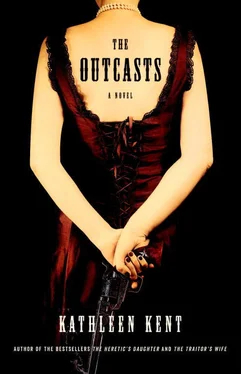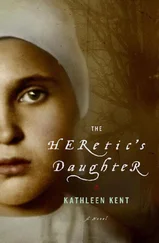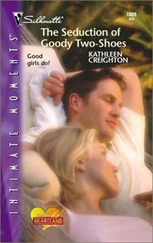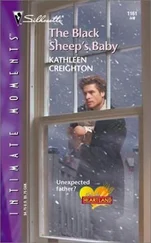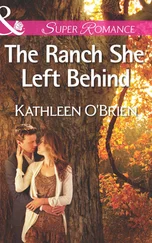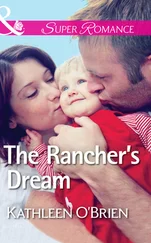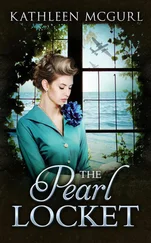“You’re still worrying on George’s good opinion of you, aren’t you? Well, the thaw is coming. You’ll see. Although a little bravado on your part might grease the wheels.”
“Bravado,” Nate said.
“Some action that shows some nerve. The snake in the bucket was a good beginning.”
“Actually,” Nate began and then paused. “I want to know how it sits with you, Captain Deerling shooting that Indian back on the Government Road.”
Dr. Tom tightened the flannel around his neck and regarded his hands, clasped in his lap. “You know I don’t make commentary on my captain’s decisions.” He looked at Nate. “It’s disloyal.” He let that sink in and then added, “But son, you want to believe me when I say you would not have wanted to meet those horse thieves on the other side.”
Nate nodded and stood, but Dr. Tom gestured for him to stay. “You know,” he said, “it occurs to me that I know nothing about you, and here I’ve been chewing your ear off for weeks. George said you’re a wonder with horses.”
Nate sat back down, acknowledging the change of tone.
“Hold nothing back,” Dr. Tom said. “I’ve got nothing to do and all day to do it.”
So Nate began to tell him of his past, of how he’d been born in Oklahoma to a mission-raised mother and a father who worked with horses and knew no other way than to break them hard, as his own father had done. And when a man gets accustomed to roping and tying a horse with a mean-set mouth and an unforgiving hand, he often gets used to treating his family in the same fashion. When Nate was fourteen, he left home and came down through Texas to Lancaster and began working with the renowned Steel Dust horses, learning from the trainer who could ride a green colt with only a rope bridle and lead after fifteen minutes of just talking to it.
Nate broke off telling his story and looked to Dr. Tom, half expecting him to be bored or restless, but the ranger smiled and nodded for Nate to continue.
The man’s name in Lancaster was McNally, Nate said, and in 1862 he joined with McNally for the Confederate cause and rode into Arkansas. Hundreds of Texans on horseback went with them that summer out of East Texas, the July that Nate turned sixteen. He rode a Steel Dust colt on a Mexican saddle he had earned with his pay and carried with him the only weapon he had, a Dance revolver given to him by McNally.
They rode through country so wasted by drought that McNally exclaimed that the horses could have found better forage from the ashes in a cookstove, and if not for the numerous rivers that were too wide and deep to disappear, the stock would have dried down to hide, teeth, and manes. The heat was murderous, pitching dozens of men from their saddles, men who then lay on the ground senseless, as though felled by a cudgel to the head.
There were uneasy rumors that Helena, the center for Confederate operations in Arkansas, was now in the hands of the Unionists, and that dysentery, typhoid, and malaria raged through the soldiers’ ranks, regardless of anyone’s loyalties. It was also put about that if the Confederate officers in charge had been more attentive to the well-being of their men instead of to cotton speculation, Helena would not have fallen.
In Hot Springs, McNally and Nate were attached to the Nineteenth Texas Cavalry, but many of the other Texans were quickly dismounted to serve in the infantry with other divisions. Some of the horseless riders, men deemed too young or too old to fight, were sent back to Texas.
Nate was released from service, but dysentery laid him low for weeks before he could depart. McNally nursed him as best he could between his own training and foraging for food. He told Nate that he considered himself most fortunate to remain mounted, as the Texans afoot were to be sent farther east, to the meat grinder of the Southern battlefields.
One night, McNally sat next to Nate as he lay on his hospital cot and told him that the Union had surrendered Little Rock; the Confederate army, along with the governor, would be reclaiming the capital. An order had gone out that three hundred army horses, the best of the herd being Steel Dust horses, had been requisitioned and would be driven up to Fort Smith and placed with the Confederate cavalry, who were determined to contain the boys in blue in Missouri.
“Nate,” he said. “I’ve got some pull with the quartermaster and have put you forward for the job. You’re not officially enlisted anymore, so what I’m about to ask you to do isn’t actually treason. Our whole future is in the bloodline of those stallions. We send them north, and we’ll never see them again. I want you to drive all three hundred horses back to Texas.”
He placed his hand on Nate’s shoulder. “Will you give me your word, as a son to a father?”
Nate made his promise, and when he was well enough to ride, he left Hot Springs with a dozen Texas boys his own age and headed with the herd northward, as though he were following the ordered plan: to go along the Arkansas River Valley, between the Boston and Ouachita Mountains, to Fort Smith. But then he drove the horses instead across the Ouachita River and headed south on mountain trails toward the Caddo Narrows, through thick forests of pine and white oak.
The herd was led by an old hammerheaded stallion with still enough fight in him to matter, and the line was sometimes strung out single file for miles. The drovers were mostly farm boys used to sleeping rough; they were decent enough in the saddle, but a few had only ever seen a horse from behind a plow. Unlike driven cattle, the herd was quiet, and Nate devised a series of whistle calls to signal trouble. For the first few days, there were signals only that all was well. On the third day, though, one stallion ran afoul of another in front and was kicked off a ledge. By the time Nate had worked himself against the line to see, the horse was dead in a ravine. He was glad he hadn’t had to try to shoot it through the tree line, but he thought it a poor start to the journey.
They came to the narrows after four days and crossed the Caddo River at a mill. Almost every homestead they passed had been deserted, the fields abandoned, but as the first dozen horses forged the Caddo, a man came out onto his porch and called out, “Any horse that shits while crossing and fouls my stream is mine.” Nate rode forward to talk to him, but the man had seen that all the drovers were young, and he challenged Nate, accusing him of stealing the horses. Nate kept the line going even when the man brought out a shotgun.
Nate told him, “All these boys can shoot. You kill me, you better go on and drown yourself in that river before they come after you.”
After a time, the man went back into his house, but Nate followed at the rear of the herd, looking over his shoulder, for the rest of the day.
They followed the Caddo River to its tail end and, where the mountains skirted behind them, came upon an open valley. The horses spread out to pick at the meager, yellow-white grasses. A horse struck on the cheek by a rattler the size of a man’s arm spooked the rest of the herd and they scattered for miles, galloping until they were tired, their heads lowered, stained with the heat and dust. Before long, the hide and hair around the wounded horse’s snakebite began to slough away, but the horse lived and there were no more stampedes.
South of Acorn, close to the Oklahoma border, Nate came upon three men on horseback sitting in a small copse of trees. He didn’t see them until he was almost on them, and the way they studied the herd prompted him to whistle a warning to the drovers.
The three riders approached, their mouths tense, their eyes searching, like men used to being guarded and watchful at all times. The leader was a spectral-faced man in a coat too weighty for the heat, and when he smiled, Nate rested his hand over the Dance.
Читать дальше
